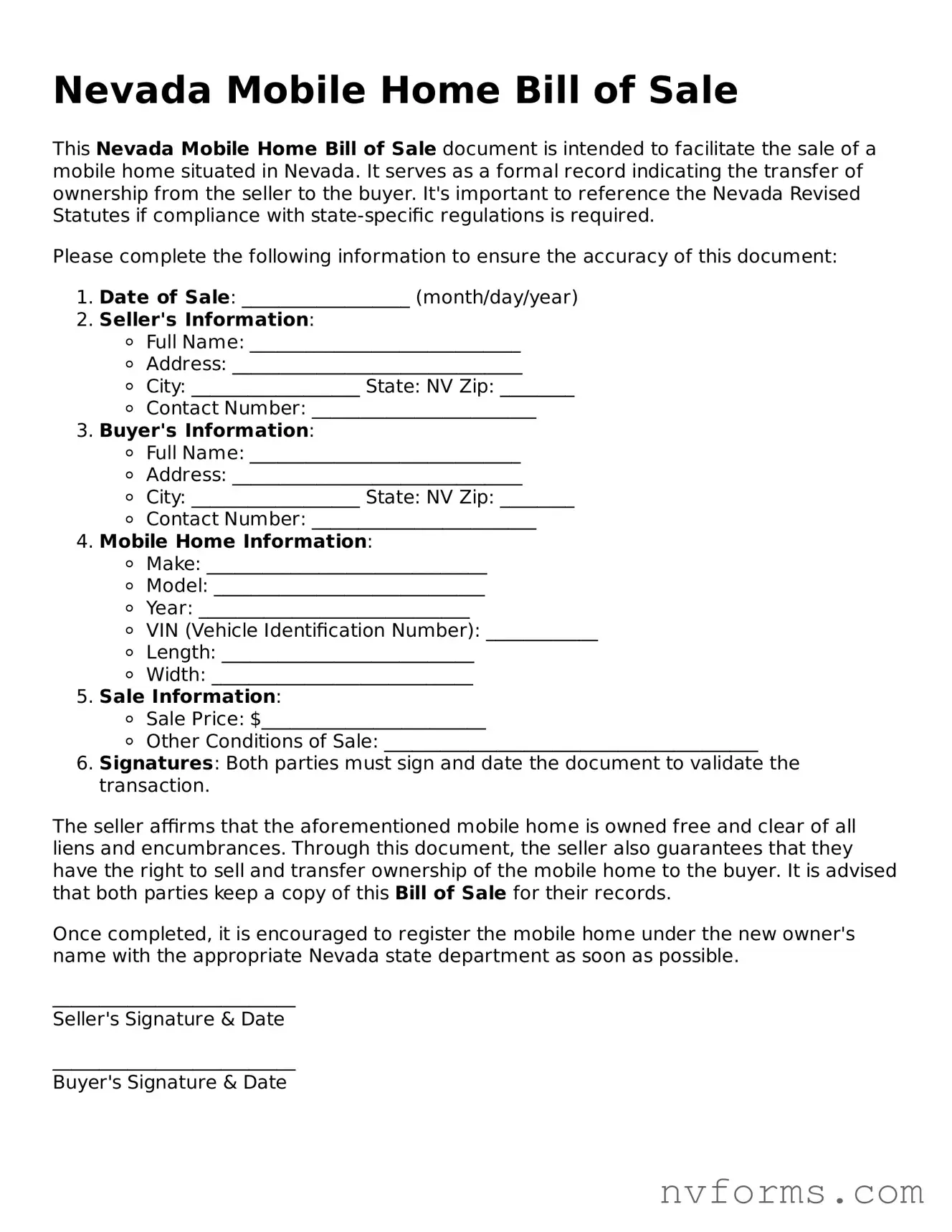Free Mobile Home Bill of Sale Form for Nevada
The Nevada Mobile Home Bill of Sale form serves as an official document that records the sale and transfer of ownership of a mobile home from one party to another within the state of Nevada. It details essential information about the transaction, including the identities of the buyer and seller, a description of the mobile home, and the sale price. This document is crucial for both parties as it provides legal proof of purchase and ownership.
Launch Editor

Free Mobile Home Bill of Sale Form for Nevada
Launch Editor

Launch Editor
or
⇩ Mobile Home Bill of Sale File
Don’t stop now — finish the form
Finish Mobile Home Bill of Sale online using an easy step-by-step flow.